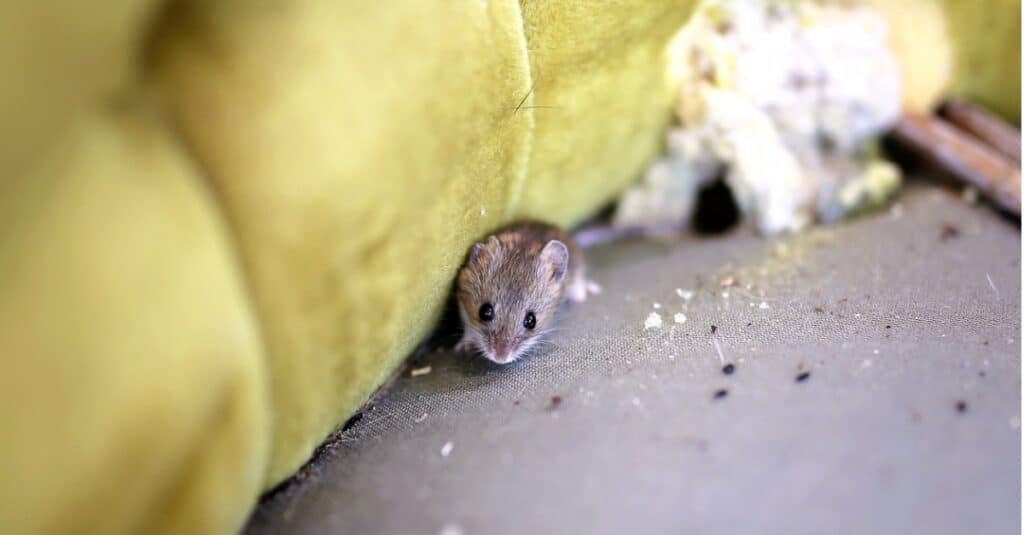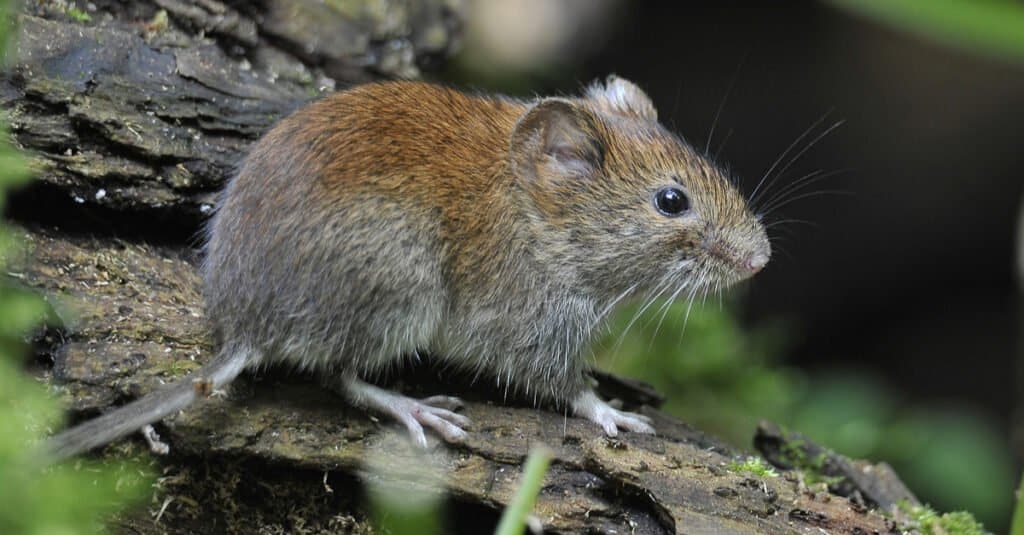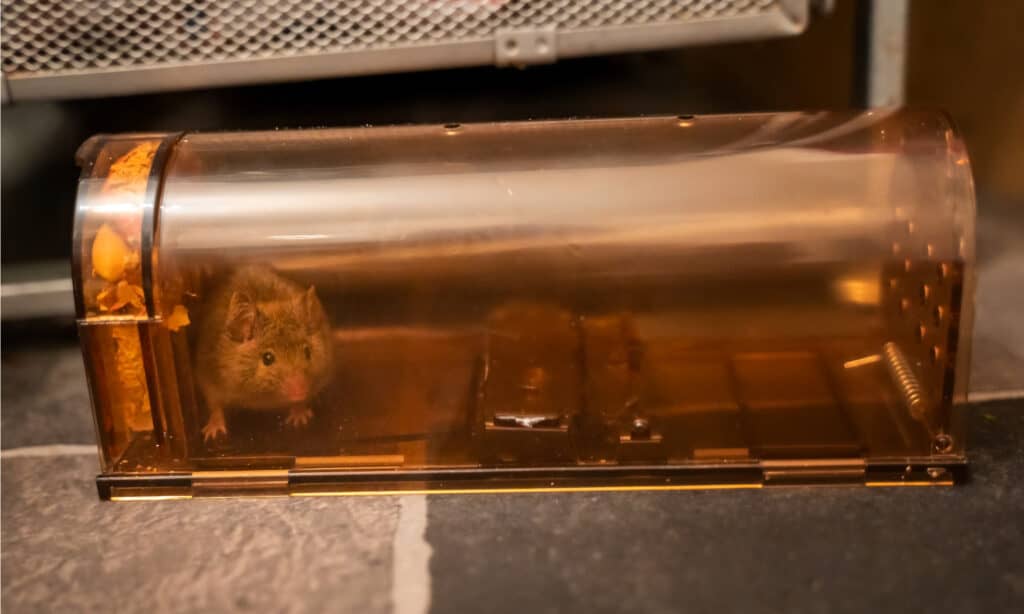Campers provide people with the opportunity to travel far and wide while bringing along the comforts of home. These recreational vehicles have unique structures that provide mice and other pests with several ways to get inside. That doesn’t mean you need to deal with these household pests. Today, we’re going to show you how to keep mice out of your camper.
By following these hints, you can continue to enjoy your travels or camping experience without having to worry about mice.
How to Keep Mice Out of Your Camper

A mouse infestation in your camper can have bad consequences.
©iStock.com/ChristinLola
Keeping your camper free from mice is a tall task. After all, mice have a lot of different ways to get into your camper. Still, a little work on your part can ensure that you only take trips and vacations without picking up any extra rodent passengers. Take a look at how to keep mice away from your camper.
1. Inspect Your Camper and Fill Gaps and Holes

Sealing up your camper is a must because mice can sneak into holes the size of a dime.
©CezaryKorkosz/Shutterstock.com
First and foremost, you must evaluate your risks for a mouse infestation by looking for gaps and holes. That means you need to do a top to bottom scan of your camper, even underneath. Find any gaps that are dime-sized or larger and fill them in. A good way to fill gaps is by putting steel wool into the hole and sealing it with spray foam.
2. Seal Up Your Food
Don’t give mice a reason to come to your camper. If they smell food, they will be drawn to your cabinets and pantries. Seal up cereal in plastic containers, throw out your old food, and make sure that you seal up your pet’s food as well. That way, you don’t have to worry about mice eating dog food or cat food.
3. Don’t Keep Your Doors Open
When it’s a cool summer night, you may be tempted to sit outside and leave the door open to let in some fresh air. You would be surprised how quickly and easily a mouse can get inside that way. A screen door can give you airflow and protection from mice, so you should certainly use that instead.
Yet, you need to inspect the screen door to make sure there are no holes in it before you use that. Also, you have to make sure the door closes flush with the frame.
4. Perform a Weekly Cleaning of Your Camper
No matter how much you use the camper, you need to clean it often. Just wipe down the interior to get rid of crumbs and dirt to keep mice away. That way, no part of your camper goes without eyes on it for too long. You want to look at the corners and cabinets of your camper to make sure there are no signs of mice.
5. Cover Vents with Wire Mesh
You can find cheap RV vent screens and wire mesh AC covers online and easily fit them. These small implements make it much harder for mice to get into your vents and then into your camper. Also, mice have a very hard time trying to chew through wire mesh, so you can count on this protection sticking around.
6. Preemptively Place Down Traps

A mouse trap can either kill or simply capture a mouse.
©lortek/Shutterstock.com
If you are in a high-density mouse area, then it couldn’t hurt to place down some catch and release mouse traps in your camper. This is especially true if your camper has a kitchenette or a lot of cabinets that you don’t go into very often.
7. Use Scents Mice Don’t Like Around Entrances
Mice dislike a lot of different smells, including peppermint oil as well as cayenne pepper. You can make concoctions on your own or buy them from a store. Spray the product or leave cotton balls soaked in the liquid around entry points and scare mice off before they get inside.
8. Make Use of Light Around the Camper
Mice are mostly nocturnal creatures. They keep to the shadows for a reason, though. The last thing they want is to run into a predator, including humans. By adding some outside or even underside lights, you can make the area around your camper somewhat inhospitable to mice.
9. Watch Where You Park Your Camper
You should also keep in mind that your parking location makes a big difference in how mice approach your camper. If you park in an area that is near the campsite’s dumpster or by an area with high grass, you’ll probably see more mice than if you park in a relatively clear spot.
10. Properly Store Your Camper
As tempting as it is to just park your camper when you’re done traveling, that’s not the best idea. Instead, you need to go over your camper thoroughly to prevent mice from staking a claim when you’re not there.
If you’re going to be letting your RV sit on its tires and jack stands, consider putting a material around them that mice can’t climb. That way, they can’t climb up the tires or stands and onto your RV. Some of the materials that mice can’t climb include smooth plastic, not PVC, though, along with smooth metal, like sheet metal.
These surfaces make it impossible for mice to dig their claws in and get leverage to climb. Of course, all this does you no good if you park your camper next to a tree or another vantage point for mice. Still, make it hard for them to climb up your camper and consider buying a large camper cover to provide another layer of protection while not using your camper.
Now that you know how to keep mice out of your camper, it’s time to put the plan into action. Buy the items you need to keep mice from getting into your camper while it’s in use or while it’s in storage. You’ll thank yourself for the effort next year when you don’t have virus-laden mouse feces in your cabinets or electronics ruined by mice.
Also, keep in mind one bonus method to keep mice away from your camper: bring along a pet. Mice do not like the idea of going anywhere near a pet cat or dog. Bring along your furry friend, and you’ll keep your camper clear!
The photo featured at the top of this post is © MainelyPhotos/Shutterstock.com
Thank you for reading! Have some feedback for us? Contact the AZ Animals editorial team.






